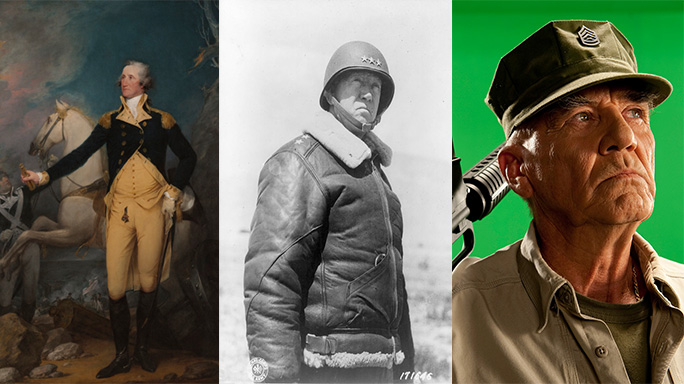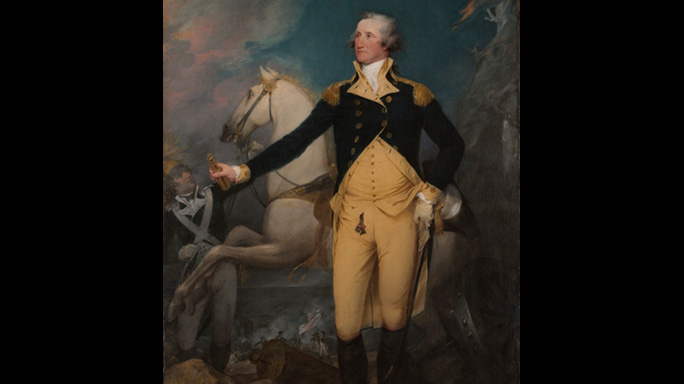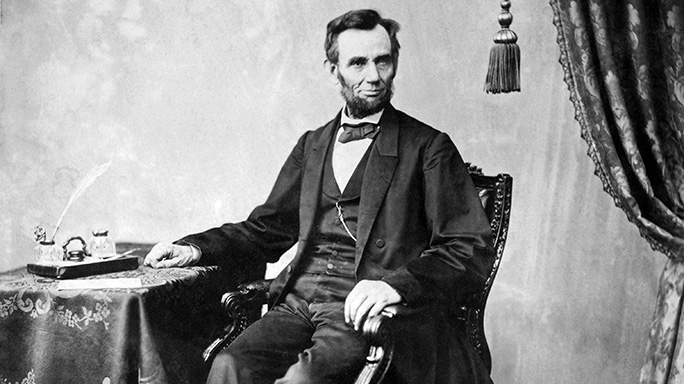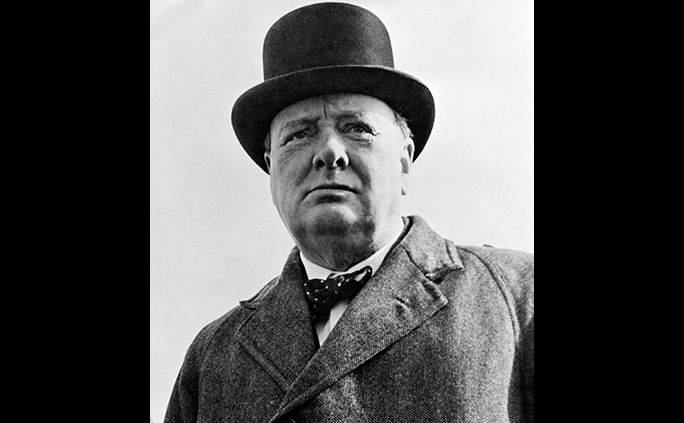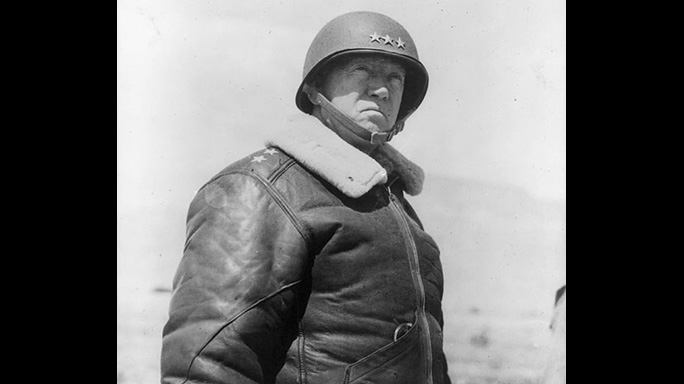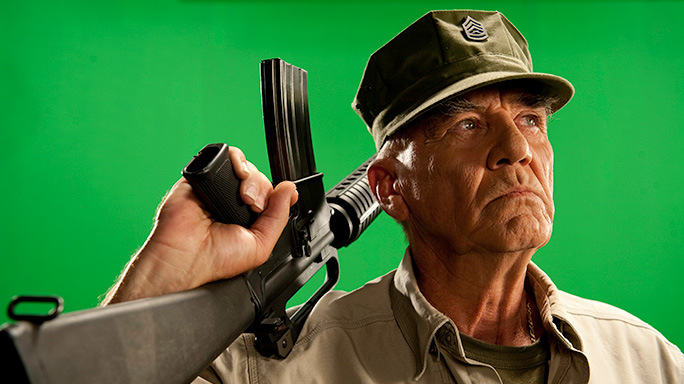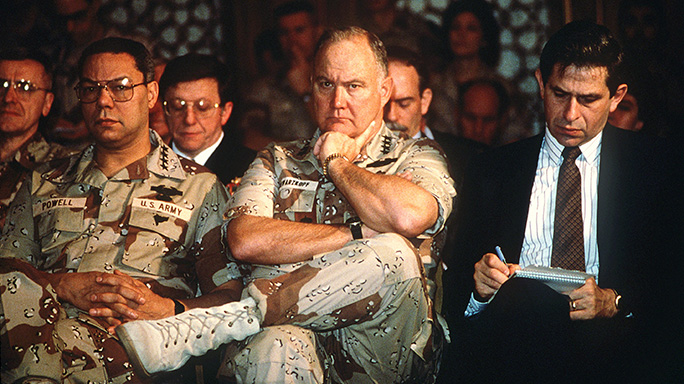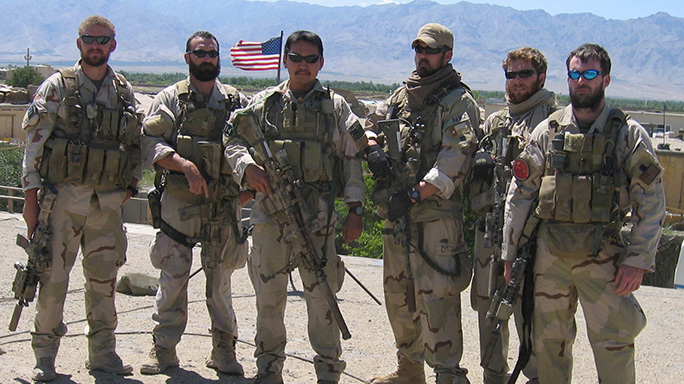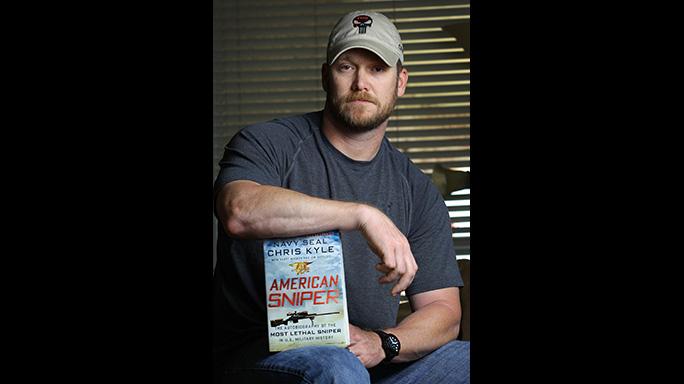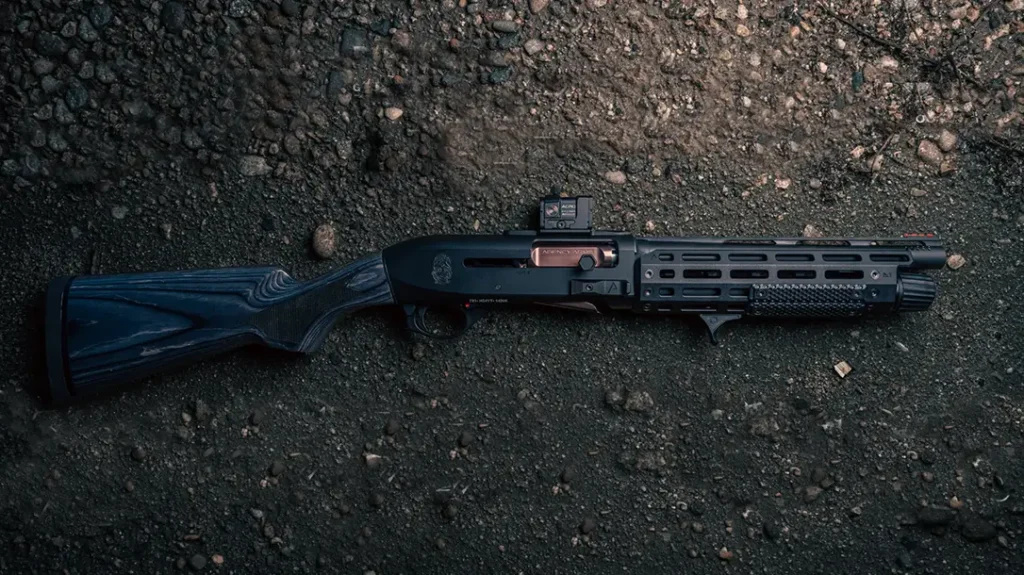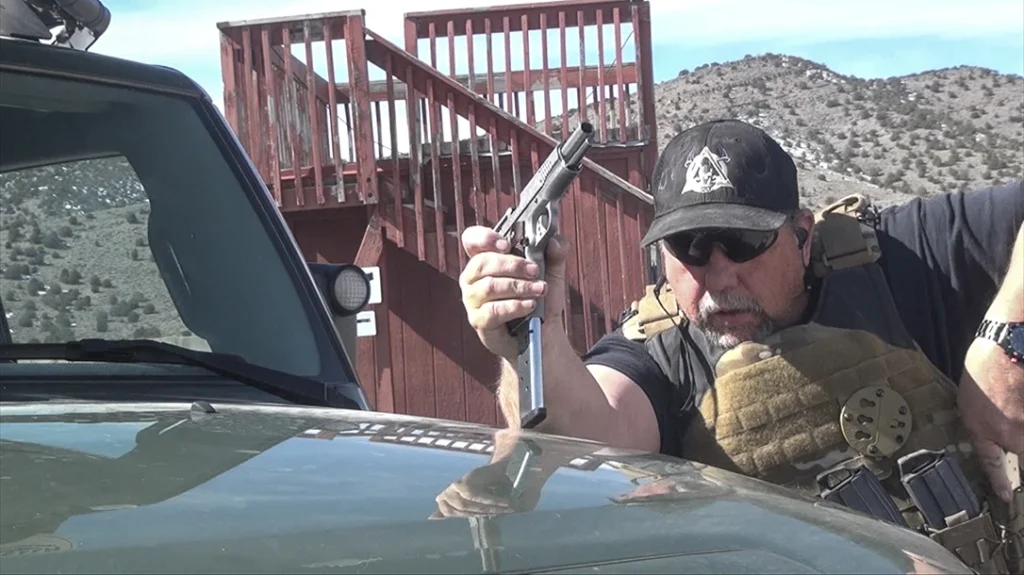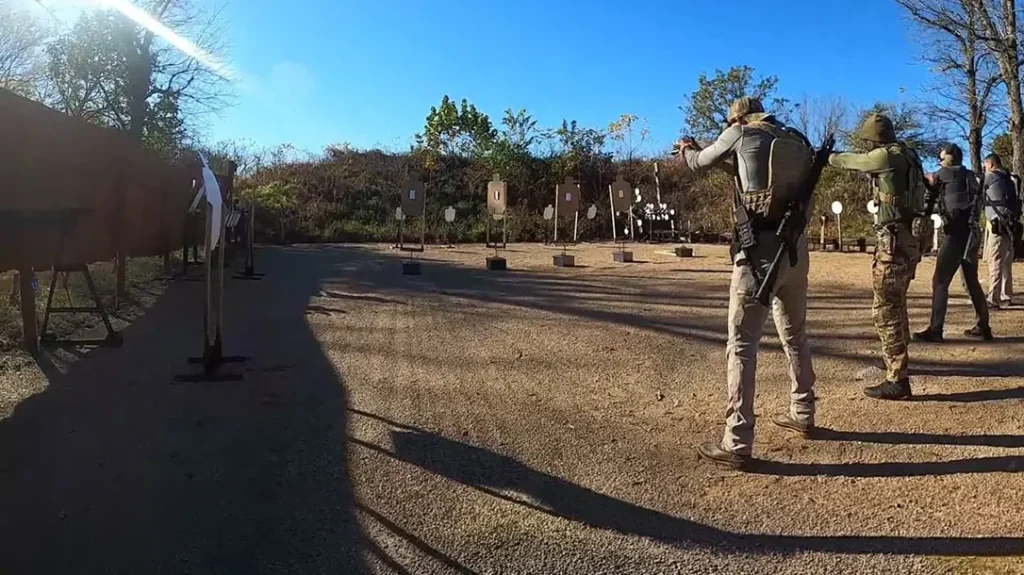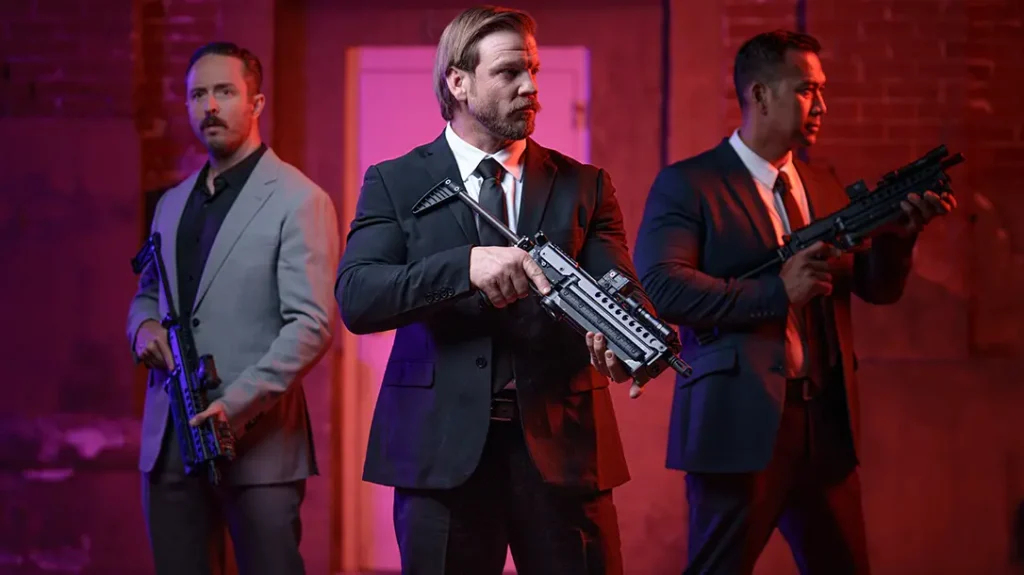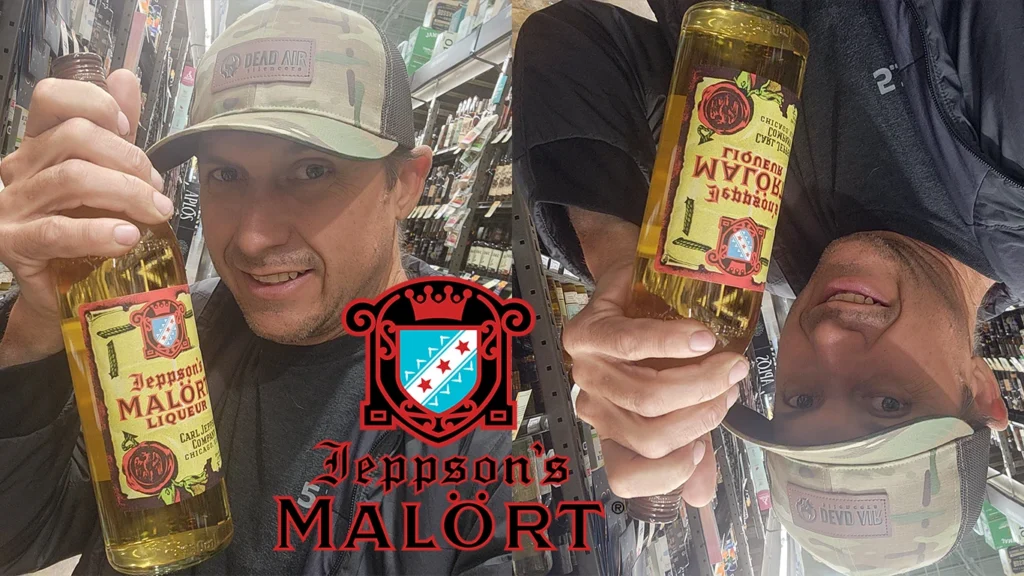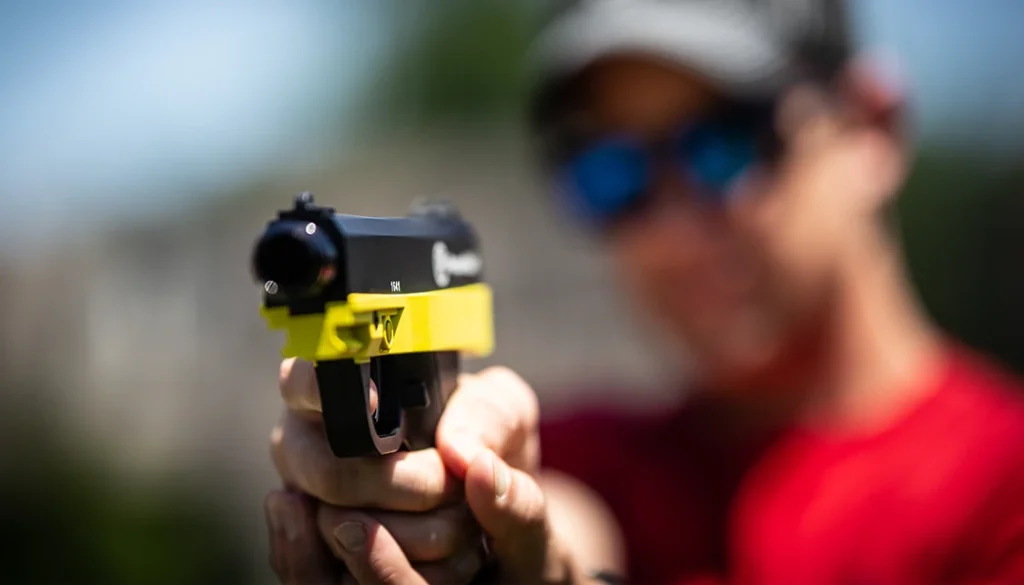Some veterans of bitter combat never speak of their experiences, and their Purple Hearts and other medals are tucked deep in their dresser drawers. Others proudly doff their VFW caps to march in parades, and still others pin medals and service patches on old jungle camo shirts when they visit that long, dark wall beside the Potomac River where they can reach out and touch the name of someone very special who never made it home.
- RELATED STORY: The Best Wartime Firearms That Appeared in Movies
The horrors of war and combat are so obvious that our fascination with the subject must be questioned: Why? Why the books, the monuments, the parades, the films, the TV documentaries, the speeches, the endless running arguments in the op-ed pages? Wouldn’t you think that the anguish and sheer heartbreak of the wars of the 20th century alone would have resulted in a condition of silent numbness?
The answer lies, I believe, in the fact that we do not want to forget. As the distinguished novelist Herman Wouk reminds us, “The beginning of the end of war lies in remembrance.”
Advertisement — Continue Reading Below
Whether we are veterans with distinguished records of service or amateur military history buffs who have never even pulled KP or slogged through boot camp (like myself), it seems important to remember the voices and deeds of soldiers, marines, sailors and airmen of the past. When we listen carefully, they speak to us across the gulf of centuries and decades of what they saw, what they felt.
Call me old fashioned, a sentimental fool, if you wish, but include me among those who want to know what it was like at Valley Forge, Gettysburg, Belleau Woods, Tarawa and Iwo Jima, Normandy Beach, the Chosin Reservoir, Khe Sanh and Kuwait. I want to know what the jokes were, and the songs the troops sang, and what they said in the letters and books they went on to write. I want to know what the politicians were telling them, and what the generals were telling them, and what they were telling each other.
The quotes gathered here sweep from George Washington’s time right up to right up to Chris Kyle, the “American Sniper” in Iraq. They are the voices of America’s warfighters, whose words are so gripping that they defy time. They will never die.
Advertisement — Continue Reading Below
- RELATED STORY: Military Surplus 2016: 4 Must-Read Historical Firearm Books
“The time is now at hand which must probably determine whether Americans are to be freemen or slaves; whether they are to have any property they can call their own…The fate of unborn millions will now depend, under God, on the courage and conduct of this army. Our cruel and unrelenting enemy leaves us only the choice of brave resistance, or the most abject submission. We have, therefore, to resolve to conquer or die.”
—President George Washington, July 2, 1776, Writings Of George Washington
Advertisement — Continue Reading Below
“Stand your ground. Don’t fire unless fired upon, but if they mean to have a war, let it begin here!”
—Capt. John Parker to his 77 Minutemen at Lexington, Massachusetts, April 19, 1775
Advertisement — Continue Reading Below
“Don’t fire until you see the whites of their eyes.”
—William Prescott, Battle of Bunker Hill, 1775
Advertisement — Continue Reading Below
By the rude bridge that arched the flood,
Their flag to April’s breeze unfurled,
Here once the embattled farmers stood
And fired the shot heard round the world.
—Ralph Waldo Emerson, “Concord Hymn” (1837)
Advertisement — Continue Reading Below
“Neither let us be slandered from our duty by false accusations against us, nor frightened from it by menaces of destruction to the government nor of dungeons to ourselves. Let us have faith that right makes might, and in that faith let us to the end dare to do our duty as we understand it.”
—President Abraham Lincoln, 1860, Collected Works
“There is Jackson standing like a stone wall. Let us determine to die here, and we will conquer.”
—Brigadier General Barnard Elliott Bee, Bull Run, 1861
“I have just read your dispatch about sore-tongued and fatigued horses. Will you pardon me for asking what the horses of yours have done since the Battle of Antietam that fatigue anything?”
—Abraham Lincoln, telegram in frustration to General McClellan, 1862
“The race is not always to the swift nor the battle to the strong, but that’s the way to bet.”
—Attributed to Damon Runyon
“Lafayette, we are here.”
—Colonel Charles E. Stanton, at the tomb of Lafayette in Paris, July 4, 1917, referring to the arrival of the American Expeditionary Forces
“Retreat? Hell, we just got here!”
—Marine Captain Lloyd Williams, answering a messenger from the French Commander as Marines arrive at the Belleau Wood sector in WWI.
“We shall go on to the end. We shall fight in France, we shall fight on the seas and oceans, we shall fight with growing confidence and growing strength in the air, we shall defend our island, whatever the cost may be, we shall fight on the beaches, we shall fight on the landing grounds, we shall fight in the fields and on the streets, we shall fight in the hills, we shall never surrender.”
—Winston Churchill, June 4, 1940
“Never in the field of human conflict was so much owed by so many to so few.”
—Winston Churchill, 1940
“I knew the United States was in the war, up to the neck and in to the death. I went to bed and slept the sleep of the saved and thankful.”
—Winston Churchill, 1941
“I hear a lot of crap about what a glorious thing it is to die for your country. It isn’t glorious—it’s stupid! You don’t go into battle to die for your country. You go into battle to make the other bastard die for his country.”
—General George S. Patton, Jr., speaking to troops in 1941
“Son, if the Marines thought you needed a wife, we would have issued you one.”
—General Lewis B. “Chesty” Puller, in reply to a Marine’s formal request for permission to be married.
“Sighted sub, sank same.”
—U.S. Navy Pilot Donald F. Mason, 1942, in one of the shortest victory messages of all time
“I gave him the whole nine yards!”
—A P-51 Mustang pilot, using a WWII expression referring to the plane’s 27-foot-long ammo belt.
“Uncommon valor was a common virtue.”
—Admiral Chester Nimitz, in Iwo Jima, 1945
“There can be no retreat when there’s no rear. You can’t retreat, or even withdraw, when you’re surrounded. The only thing you can do is to break out, and in order to do that you have to attack, and that is what we’re about to do. Heck, all we’re doing is attacking in a different direction.”
—Marine Major General Oliver P. Smith, in Korea, 1950
“The only way we got out of Frozen Chosin is because a lot of young guys know how to fight. God bless the Chosin Marines. They are my brothers for life…Every Memorial Day my thoughts go drifting back to those youngsters who never came home. I can still see them as they were then. They’ll never grow old.”
—Lieutenant Henry Litvin. A battalion surgeon with the Marines, Litvin was describing fighting out of the Chosin Reservoir in North Korea, 1950
“Fix bayonets! Charge! Everybody goes with me!”
—U.S. Army Capt. Lewis Millett, in Korea, 1951
“In the final choice, a soldier’s pack is not so heavy a burden as a prisoner’s chains.”
—President Dwight D. Eisenhower, First Inaugural Address, 1953
“There is always inequity in life. Some men are killed in a war, and some men are wounded, and some men are stationed in the Antarctic and some are stationed in San Francisco. It’s very hard in military or personal life to assure complete equality. Life is unfair.”
—President John F. Kennedy, 1962
“The good company has no place for the officer who would rather be right than be loved, for the time will quickly come when he walks alone, and in battle no man may succeed in solitude.”
—Brigadier General S.L.A. Marshall, 1964
“Because I am hard, you will not like me. But the more you hate me, the more you will learn. I am hard, but I am fair! There is no racial bigotry here! … Here you are all equally worthless! And my orders are to weed out all non-hackers who do not pack the gear to serve in my beloved Corps! Do you maggots understand that?”
—R. Lee Ermey, as Gunnery Sergeant Harman in Full Metal Jacket
“All the wrong people remember Vietnam. I think all the people who remember it should forget it, and all the people who forgot it should remember it.”
—Michael Herr, The London Observer, 1989
“It doesn’t take a hero to order men into battle. It takes a hero to be one of those men who goes into battle.”
—General H. Norman Schwarzkopf
“First, we are going to cut it off, and then we are going to kill it.”
—General Colin Powell, on plans to destroy the Iraq Army during the Gulf War, 1991
“I am the Infantry—Queen of Battle! For two centuries I have kept our Nation safe, purchasing freedom with my blood. To tyrants, I am the day of reckoning, to the suppressed, the hope for the future. Where the fighting is thick, there am I. I am the Infantry! Follow me!
—Creed of the U.S. Army Infantry Center, Fort Benning, Georgia
“SEALs…fight in teams, only in teams, each man relying entirely on the others to do exactly the right thing. That’s how we do it, fighting as one in a team of four or maybe even 10 or even 20, but always as one unit, one mind, one strategy. We are, instinctively, always backing up, always covering, always moving to plug the gap or pave the way. That’s what makes us great.”
—Navy SEAL Marcus Luttrell, Lone Survivor
“Bin Laden knew we were coming when he heard the helicopter. I had more respect for Ahmed al-Kuwaiti in the guesthouse because at least he tried to defend himself and his family. Bin Laden had more time to prepare than the others, and yet he still didn’t do anything. Did he believe his own message? Was he willing to fight the war he asked for? I don’t think so.”
—Navy SEAL Mark Owen, No Easy Day
“People tell me I saved hundreds and hundreds of people. But I have to tell you: It’s not the people you saved that you remember. It’s the ones you couldn’t save.”
—Navy SEAL Chris Kyle, American Sniper
